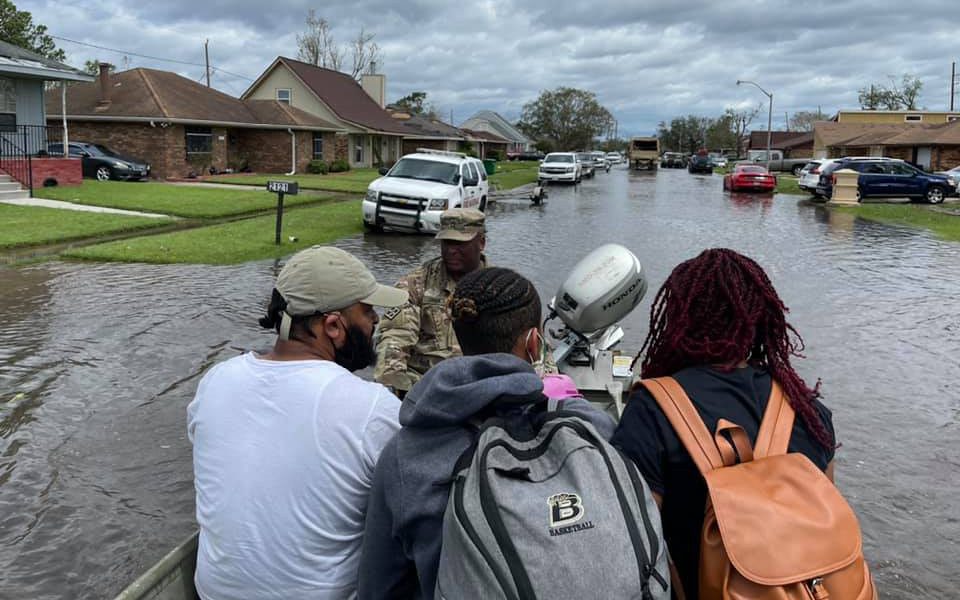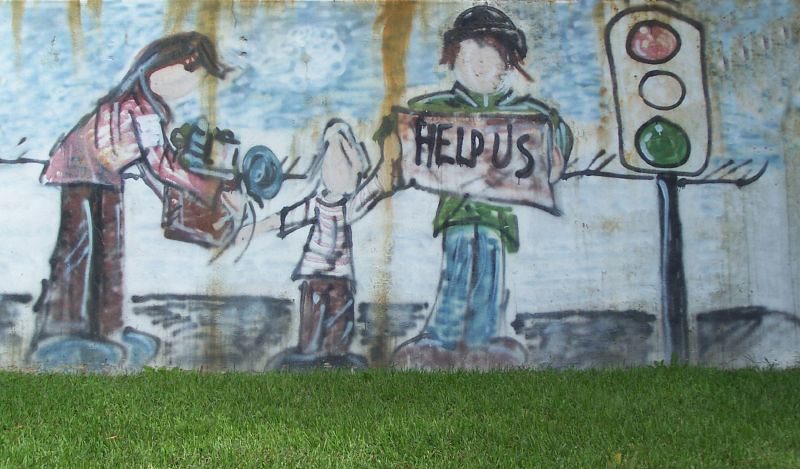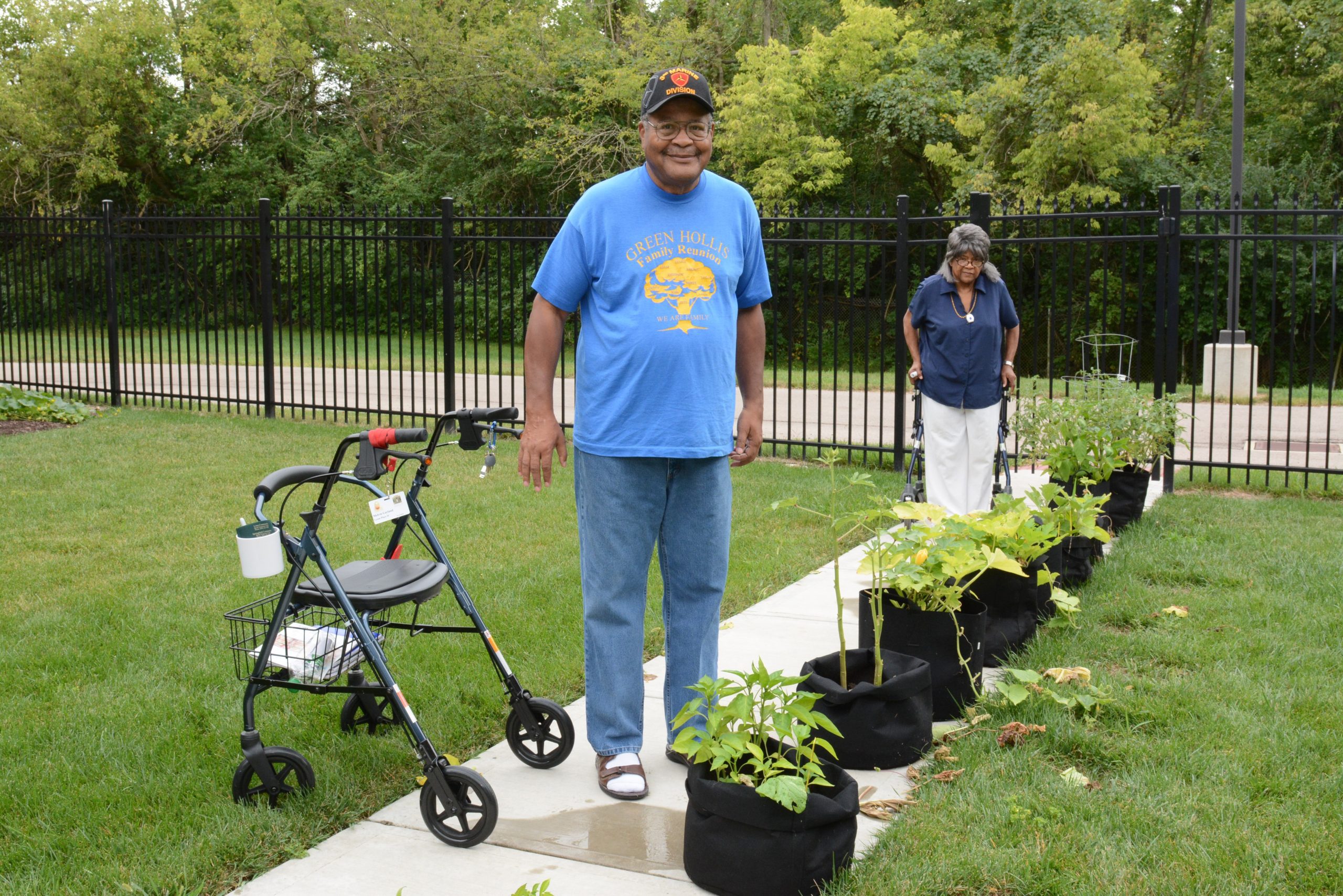I recently had the opportunity to talk with Housing NOLA’s Andreanecia Morris about what’s going in New Orleans after Hurricane Ida. Morris has been working on housing stability in the city since Hurricane Katrina, and I was curious how the city handled the recent disaster. Have we learned anything in the last 16 years?

Andreanecia Morris, executive director of Housing NOLA
Andreanecia Morris: Katrina revealed the massive inequities in a place like New Orleans with our very complicated racial history. It was a forerunner of other challenges, like the COVID crisis. I like to say that Katrina is the beginning of the modern disaster era. It raises up critical issues like climate change and economic inequalities and gender issues or how we treat our children and how our education system works, and at the core of all of that is housing and race.
Who got left? Why couldn’t they get out and what was going on with the rescue? Why was it taking so long to get people out? The world looked and said, “Damn, this is messed up. The United States of America can’t manage this? What the hell is happening?” There was a lot of introspection, there was a lot of outrage. We had a catastrophic failure at all levels of government—city, state, and feds.
There was a lot of discussion about what we could do better, and people started talking about resiliency. People said we’re not going to let New Orleans disappear. The people of New Orleans stood up and said, no, we want to go home. We demand that it be made safe for us because it can be made safe.
Fast forward 16 years later, and no, we didn’t learn anything. I think people with decision-making authority got comfortable with the idea well, there’s always disasters now. What was unique about what happened with Katrina was everybody looked at it, right? Then there [were] successive disasters and catastrophes from the oil spill to the other hurricanes. Then of course, that expanding. Other people dealing with those same issues, Superstorm Sandy and so on and so forth. It gave policymakers the excuse to dilute the necessary response. What should have happened was people realized that this was an American problem. It was not unique to New Orleans; it was not unique to the Deep South. It doesn’t seem to have taken.
I knew that with a certainty when Hurricane Maria hit. I watched as the high points of Katrina were replicated with another community, except there wasn’t the outrage. No one was responding, no one was coming up with solutions that would fix the root problem.
With COVID, I was like, “OK, so we didn’t learn shit.” COVID in a lot of ways was Katrina across the country.
No. 1, who it hurt. The modern disaster era finds Black and Brown people like a heat-seeking missile. It also gave me a clear concept of how entrenched the biases are around housing. Everyone who said, “Shelter at home,” as an elected official in 2020 did not [also] say, “OK, we have to roll out these emergency housing policies because we’ve told you all shelter at home and now we have to make sure that you can actually do that.” That came out of the mouths of almost no one.
Anyway, here comes Hurricane Ida and what we could have done was use the tools that have been put in place. We could have put people in hotels using the COVID non-congregate shelter housing program before the storm. We could be distributing rental assistance quickly. Weren’t doing that before the storm, not doing it now.
FEMA
FEMA’s still pretty broken. The fact that it took 10 days after [Hurricane Ida] for the first blue roof program to go up is an embarrassment. For the first five days, the program was being announced everywhere, you couldn’t get anybody on the phone. You called in and they said, “Hey, we’re going to have operators inside 24 to 48 hours.” [And] the website wasn’t working.
I personally called news stations; I’m like, “Hey, the blue roofs site and the phone number isn’t working. Stop telling people to call there because you’re just frustrating them.”
[It’s] not that FEMA wasn’t there, but they didn’t come with the resources necessary. Why we weren’t awash in mobile COVID testing centers and mobile vaccination centers along with the blue tarp people? Along with mobile communication towers?
Communications Systems
In the last 16 years, instead of recognizing how vulnerable some of these telecom systems are, everybody’s pushed their lives on to these cell phones, onto fiber optic networks at their own home. That stuff stopped working. It didn’t matter if you had a generator. A massive loss of power even for a day cripples telecommunications. At the same time, you’re telling people to call and go online to get help.
This was one of the things that we were frustrated about with COVID. Like, oh, go sign up for rental assistance online. You think somebody who’s a year in arrears has got internet in their house? You would judge them if they did: “You’re not paying your rent, but you’re paying to keep the internet on so you can watch Netflix.”
The most vulnerable households didn’t have internet before COVID. Seventeen percent of New Orleanians don’t have internet access in their homes or didn’t before COVID, not even a smartphone. That’s almost one in five in a society that is so heavily dependent upon it.
In New Orleans when there’s a major event, the telecom companies know that they need to boost their signal because there are more people than the system is designed for. The system is designed for the people who live here and visitors at a certain level. When there’s a big massive event, like Jazz Fest and Mardi Gras, they know they need to supplement.
Why weren’t they ready to do that? Not to supplement but to supplant. That’s something that should have been coordinated through FEMA. Yes, we’re going to need to be able to communicate with people.
How Racism Hurts Everyone Post-Disaster
In Baton Rouge, there was a catastrophic series of floods in 2016 and there’s all this resentment because they didn’t get the attention that Katrina got. There’s this notion that [the great attention to Katrina] was happening because [the people affected] were Black. Well, no, the scope and the scale and the responsibility were different.
I don’t know why anybody wants clicks and likes on social media or even being on television. What you should want is for your government to respond appropriately. You should want more than what we got for Katrina—more thought, more compassion, more equity.
Instead, they settled for this program where they could live inside of their wrecked home and work on it and get money so that they can get a hot plate and a microwave or things like that, so they could tough it out while the house gets fixed. What the hell?
[RELATED ARTICLE: Weathering the Effects of Climate Change by Going Beyond Infrastructure]
All that does is it reinforces this notion that what you should want as a white homeowner is not to be relocated or put up in a hotel or the DHAP [Disaster Housing Assistance Program] where you would get to rent for at least a year, with all utilities paid. You shouldn’t want any of that. That’s what “they” demanded. You shouldn’t want that, you don’t need that.
They fall for it. Lyndon B. Johnson said that you can take the poorest white man and convince him to turn out his pockets for you if you tell him you’re going to hurt Black people. So all these Lyndon B. Johnson white people are taking less than they need, less than they deserve, for fear that they will look like Black people—who also didn’t get what they needed or deserved either.
And we’re doing it again. There are people in the Bayou areas that were devastated [by Ida], they’re talking about, they want tents so they can stay on their own properties.
When Republicans don’t vote for [good disaster relief], even when it benefits their own district, they’re saying, “Well, yes, I know y’all need help, but you don’t want help like this.” This is why even when the federal government puts out policies that work, we have got to have the equity conversation at the city and state level.
Hotels
The fact that the city and the state are not grabbing every hotel room they can to put people in and using the COVID program to get themselves reimbursed is an embarrassment and it’s been an embarrassment.
Last year, the assessor of New Orleans gave almost all of our hotels a ridiculous tax break for COVID despite the fact that that’s not something that he offered to landlords or to homeowners who have lost their jobs.
Now COVID is continuing and we’re going to give you more business, we’re going to have 100 percent occupancy at the slow season—Jazz Fest and French Quarter Fest and everything has been canceled—[and] you’re going to have the nerve to turn your nose up at these people?
[RELATED ARTICLE: FEMA Offers Full Reimbursement for Pandemic Shelter Costs—But Cities Are Still Jittery]
Let’s talk about the average New Orleans guests. They’re coming for the Sugar Bowl or they’re coming for Mardi Gras. You’re going to tell me that the average New Orleanian is less [desirable as a hotel guest] than an Alabama fan, than a frat boy, or a bachelor party? Are you kidding me?
Let’s even go there and let’s talk about someone who is street homeless, someone who is struggling or in the grips of an addiction, I would still argue that that person is a better [guest]. Also, you provide a street homeless person with housing and the supportive services to help them deal with their addiction, to help them deal with any mental issues they may have, you can stop this in its tracks.
It’s so important that we use the COVID hotel program to stop COVID. Guess what? If we don’t get our arms around this damn delta variant, there won’t be a Mardi Gras for 2022.

After Hurricane Ida in September, more than 6,000 members of the National Guard were in Louisiana assisting state and federal partners with relief efforts. Above, National Guardsmen rescue people in LaPlace, Louisiana, a New Orleans suburb. Photo courtesy of the Louisiana National Guard, via flickr, CC BY 2.0
The Bayou
Now the speaker of the [Louisiana] House, he represents Houma. Houma is an area in Bayou country, one of the areas that’s been just devastated by Ida, and he tweeted the other day about he’s seeing people get evicted because the apartment complex is telling people that they have to leave.
Speaker, how about you have a hearing and you say, let’s figure this out. Let’s talk about assessing and determining whether that building is un-occupiable, but if it is, what are you going to do to help your constituents because they need somewhere to stay? How about you press the governor on deploying the COVID hotel program for your constituents who have been evicted?
We want to make sure they’re treated fairly, but fighting to keep people housed in substandard and storm-damaged properties, that’s not the answer. Yes, there’s probably some bad actors. There’s probably some landlords who are mad because they haven’t got paid during COVID and they’re using this as an excuse. I can name better than most the scenarios where there’s a bad-acting landlord.
I can also name where there’s a landlord who has no choice because the property has been rendered un-occupiable, it has been damaged. Their insurance company is telling them, you need to clear this property or we’re canceling your policy.
In the middle, the person who doesn’t have anywhere to stay. There’s a vacant hotel room somewhere, there’s a vacant Airbnb somewhere. And when they say, I got to go back and forth to my job, we need to be talking about a shuttle service. Also giving that person the latitude to say, “If you could help me and keep me stable, I will leave the job because yes, I want to work, but this is a job where I can’t take off when my house has been destroyed. This is a job that doesn’t pay me enough so that I could have evacuated ahead of the storm.” If you can’t make it work, you should be able to leave.
Resiliency
New Orleanians have been over resiliency for a while. The analogy I’ve been using is, we want people to take a devastating blow to the face, a vicious uppercut that knocks you out, and we all stand around and say, “Look at them. Look, they’re standing! Their teeth are knocked out. They got hit by a merge of Mike Tyson and Muhammad Ali. And they took that and they stood up.”
What keeps happening as you expect people to be resilient in that way, is a lot of them don’t get up. That’s what’s happening with COVID. That’s what’s happening with [hurricanes] Delta and Laura and the polar vortex, and now with Ida. A lot of people aren’t getting up.
Community resilience is how does this community stand in front of that punch? How do you help the person duck? This is a telegraphed punch. How do you stand in front of them, community, and take the blow? How do you help them throw up hands to guard their face?
[RELATED SERIES: The Resiliency Issue]
Long-term, as we battle climate change, the other goal is we got to say, “Excuse me, why are you punching these people? Stop punching these people,” but until we get to that point, the measure of whether or not a community is resilient is how it protects people from the inevitable.
That’s why the death toll in Louisiana is as high as it is—because we weren’t ready to protect them. When you’re sitting in almost 100-degree heat in the hottest time of the year, and you’ve got vulnerable people, you need to have had policies in place beforehand. No. 1, a rental registry would have been nice. A healthy homes ordinance, so you set standards for whether a building needs a generator.
We’re running a hamster wheel in the wrong way and every now and again, it shakes loose, and we end up going backwards and people lose their lives, people lose their businesses, people lose hope. These communities can’t take this because they’re not resilient.
That expectation of a resilient people, it needs to be put out to pasture.
We need to be saying, why isn’t this system resilient? Why isn’t this city resilient? Why isn’t this parish resilient? Why isn’t this state resilient for its people?
New Orleans, we are the harbinger of what this modern disaster era looks like, we are the canary in the coal mine. We are also the path forward if we could get our act together and actually do the things that we have learned.
Thank you.




Comments